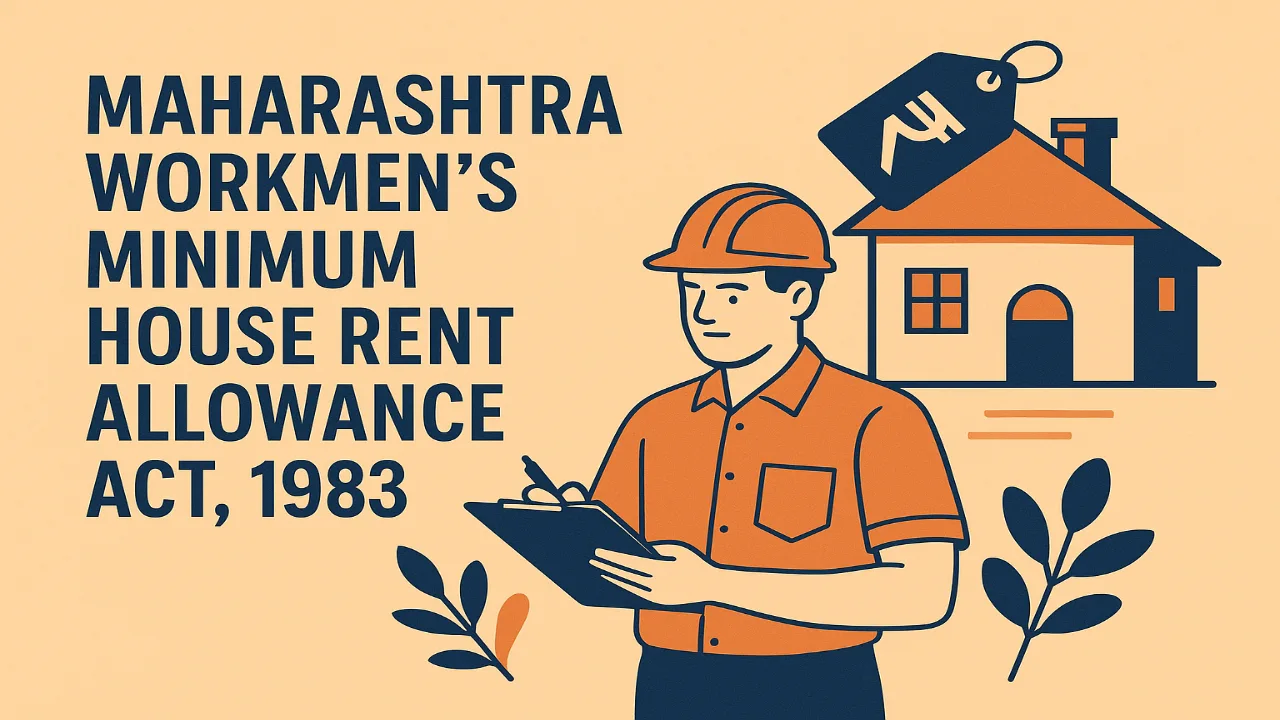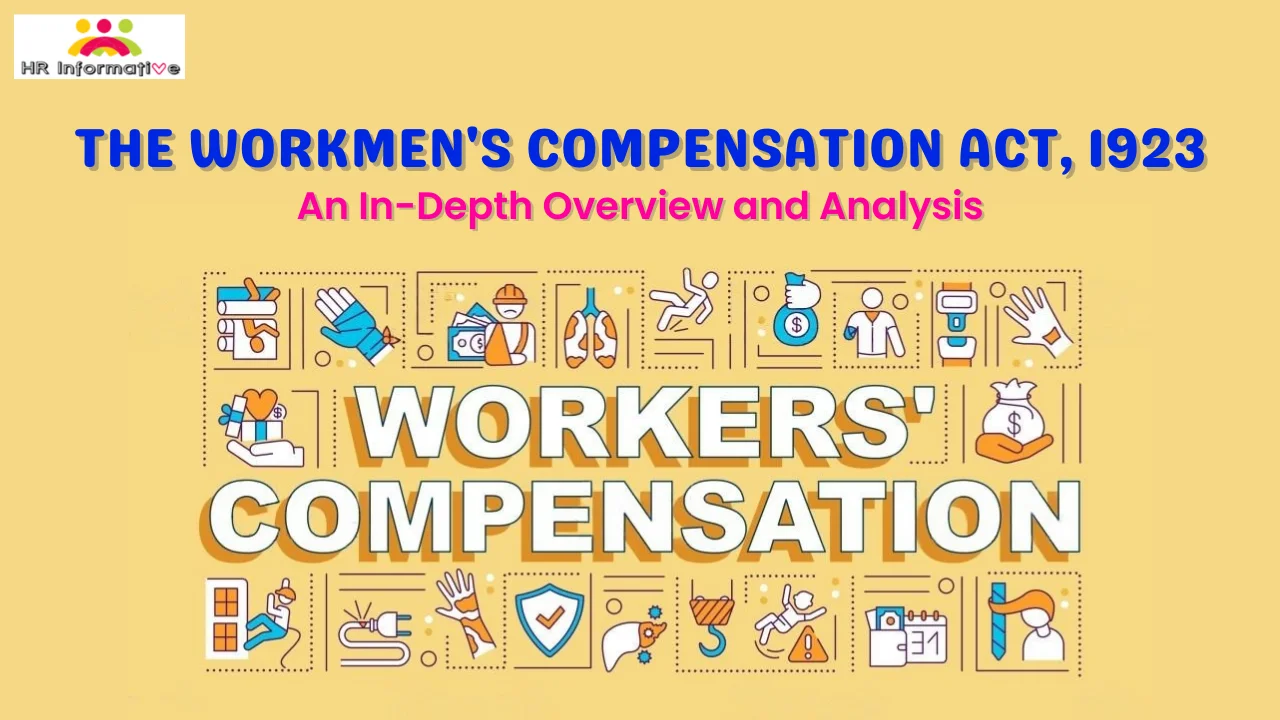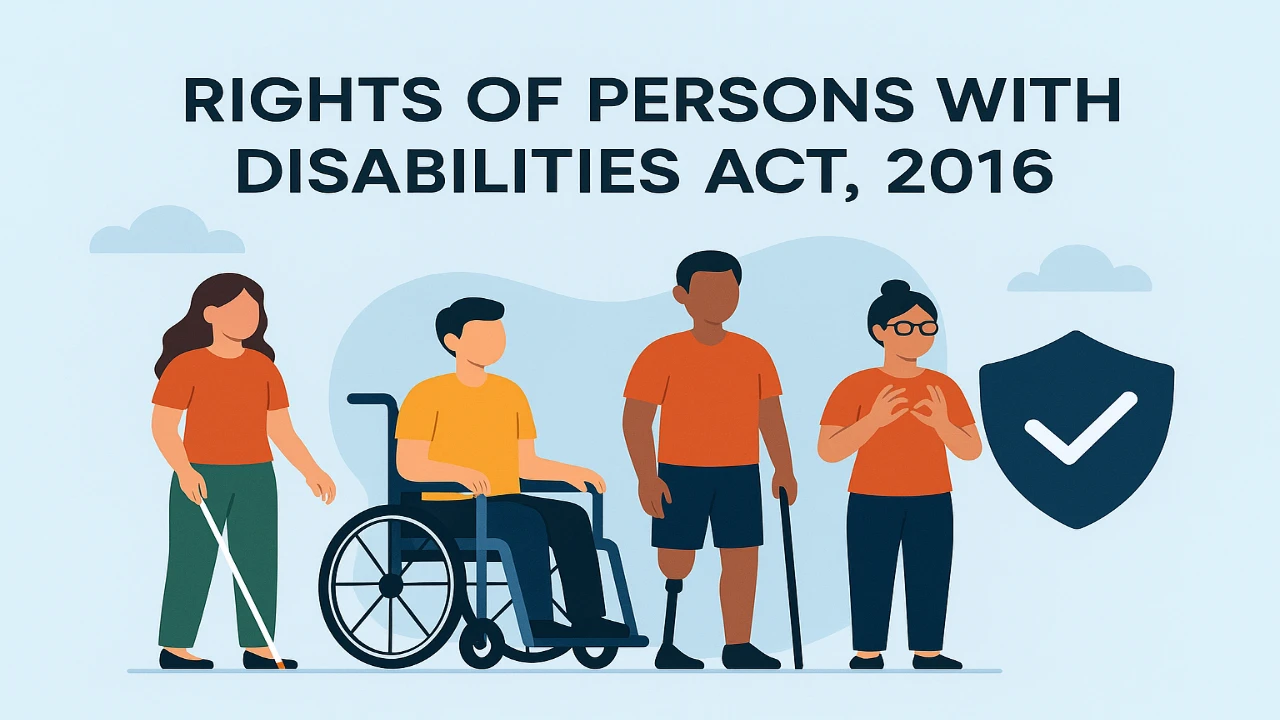The Maharashtra Workmen’s Minimum House Rent Allowance Act, 1983 is a significant labour law enacted to safeguard the interests of industrial workers in Maharashtra by ensuring they receive a minimum house rent allowance (HRA). This Act aims to provide financial support to workmen for their housing needs, thereby improving their quality of life. Below is a comprehensive yet simple explanation of the Act to help both employees and employers understand its essence and application.
Overview of the Act
The Maharashtra Workmen’s Minimum House Rent Allowance Act, 1983 was enacted with the purpose of mandating the payment of a minimum house rent allowance to workmen employed in industries across Maharashtra. The Act applies to factories and establishments engaged in various industries where the State Government is the appropriate authority.
- Applicability: The Act applies to every factory or establishment in Maharashtra employing 50 or more workmen. However, the State Government may extend applicability to smaller establishments by notification.
- Commencement: The Act came into force on dates notified by the State Government for different areas and industries.
Key Provisions for Employees and Employers
1. Payment of House Rent Allowance
- Every eligible workman must receive a minimum house rent allowance equal to 5% of the wages payable for their monthly service or Rs. 20, whichever is higher.
- Wages here mean the basic wages plus dearness allowance.
- The allowance is payable along with the monthly wages and must be given in cash, cheque, or directly credited to the workman’s bank account.
- If a workman works for less than a month, the house rent allowance is payable on a pro-rata basis.
2. Conditions Affecting HRA Payment
- If the employer provides residential accommodation to the workman and deducts rent from their wages, the house rent allowance will be adjusted accordingly.
- If no deduction is made from wages for the accommodation provided, the employer is not required to pay the house rent allowance at all.
- Workmen who already receive a house rent allowance higher than the minimum prescribed by this Act under any other agreement or settlement shall continue to receive the higher amount.
3. Coverage of Leave and Other Periods
The Act considers various periods as service months for HRA calculation, including:
- Periods of layoff under agreements or laws.
- Days lost due to lockouts if wages are paid.
- Authorised leaves such as sick leave, casual leave, maternity leave (up to 12 weeks for females), holidays, etc.
4. Dispute Resolution and Enforcement
- Any dispute regarding house rent allowance between employers and workmen is deemed an industrial dispute and is governed by relevant labour laws for investigation and settlement.
- The State Government appoints a Controlling Authority (usually a senior labour officer) to administer the Act and resolve disputes.
- Employers are required to maintain proper records of wages and house rent allowances paid.
- Non-payment or delayed payment of house rent allowance can lead to recovery as a fine imposed by a Magistrate.
Benefits for Employees
- Ensures financial support for accommodation, reducing their housing burden.
- Protects the rights of workmen to receive this benefit as a mandatory component of wages.
- Provides a mechanism to address grievances through designated authorities.
Benefits for Employers
- Clarifies the minimum obligation towards house rent allowance payments.
- Helps maintain good industrial relations by compliant treatment of employees.
- Provides a formal mechanism for dispute resolution to avoid prolonged conflicts.
Supplementary Rules for Practical Implementation
Along with the Act, the Maharashtra government has issued the Maharashtra Workmen’s Minimum House Rent Allowance Rules, 1990, which provide detailed practical guidelines for implementing the Act. Key points include:
- Employers must pay HRA within 10 days after the wage month.
- Employers are required to maintain registers recording HRA payments.
- Clear procedures are established for workers to request recovery of unpaid HRA.
- The Rules define the roles of Inspectors, Appellate Authorities, and Controlling Authorities for the Act’s administration and enforcement.
Real-World Example
Case Study: A manufacturing unit employing 100 workmen provides some workers with company quarters and deducts rent from their wages. One workman’s wages are Rs. 8,000 per month (basic + DA). The minimum HRA for him would be 5% of Rs. 8,000 = Rs. 400. If the rent deducted is Rs. 300, the employer must pay an additional Rs. 100 as HRA. Conversely, if the rent deducted was Rs. 500, no extra HRA payment is required since the rent exceeds the minimum HRA.
Summary
The Maharashtra Workmen’s Minimum House Rent Allowance Act, 1983 is an important legislation aimed at improving the living standards of industrial workers by ensuring they receive a minimum house rent allowance. Employers in Maharashtra must comply by paying this allowance as part of monthly wages to eligible workmen, maintaining records, and adhering to dispute resolution procedures under the Act. For workmen, it guarantees a steady support towards their housing expenses, enhancing their welfare and security.
This Act embodies a fair balance between the interests of employees and employers by setting clear expectations and providing a consultative framework to resolve related disputes, fostering harmonious industrial relations in Maharashtra.
Frequently Asked Questions (FAQs)
Q1. Who is eligible to receive the minimum house rent allowance?
A: Any workman employed in a factory or establishment covered by the Act, usually with 50 or more employees.
Q2. How is the minimum house rent allowance calculated?
A: It is the higher of 5% of wages (basic + dearness allowance) or Rs. 20 per month.
Q3. Does the Act cover periods of leave for HRA calculations?
A: Yes, authorised leaves such as sick leave, casual leave, holidays, and maternity leave up to 12 weeks are included.
Q4. What if the employer provides accommodation to the workman?
A: If rent is deducted from wages for accommodation, the HRA is adjusted accordingly. No HRA is paid if accommodation is given rent-free.
Q5. What happens if an employer delays or fails to pay HRA?
A: The worker can apply for recovery under industrial dispute laws. Non-payment can lead to fines imposed by a Magistrate.
Q6. Are there any rules supplementing the Act?
A: Yes, the Maharashtra Workmen’s Minimum House Rent Allowance Rules, 1990 provide detailed procedures for payment, record keeping, and dispute handling.
Check out More Helpful Articles :



